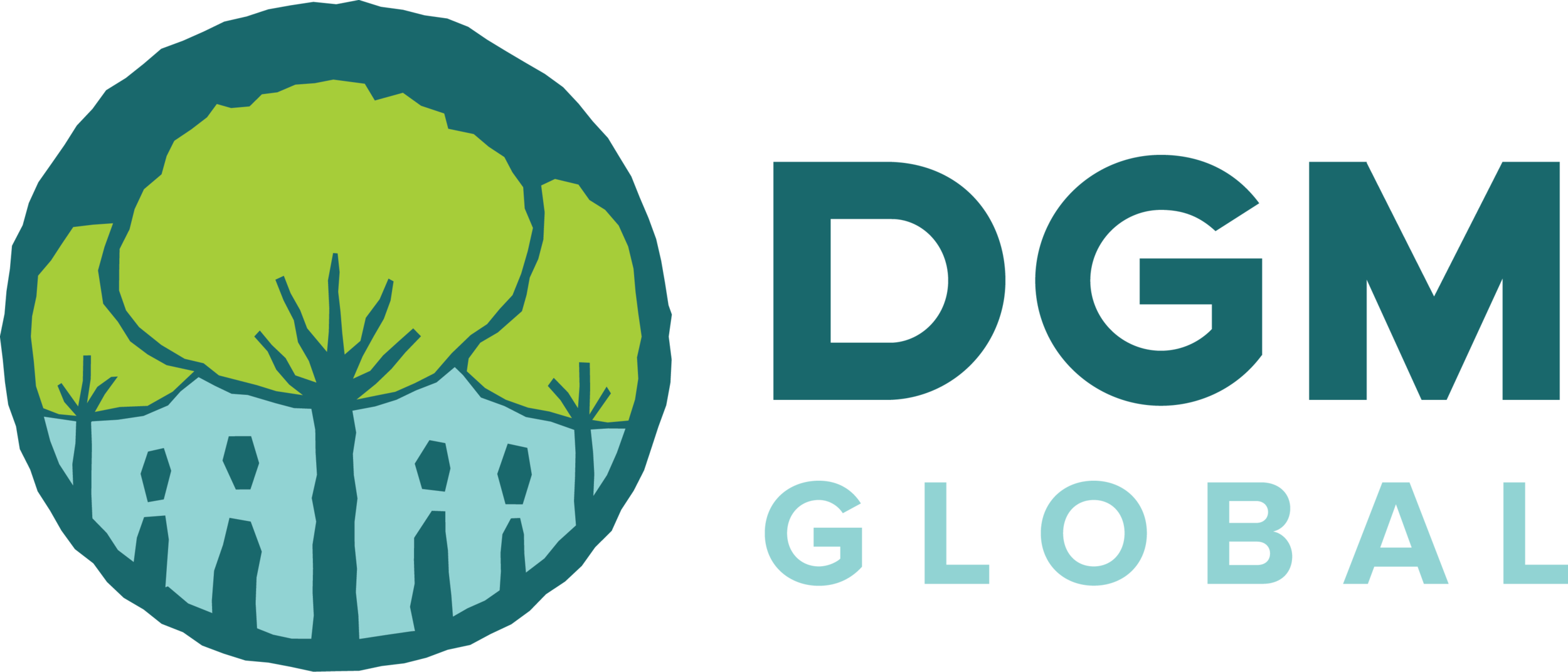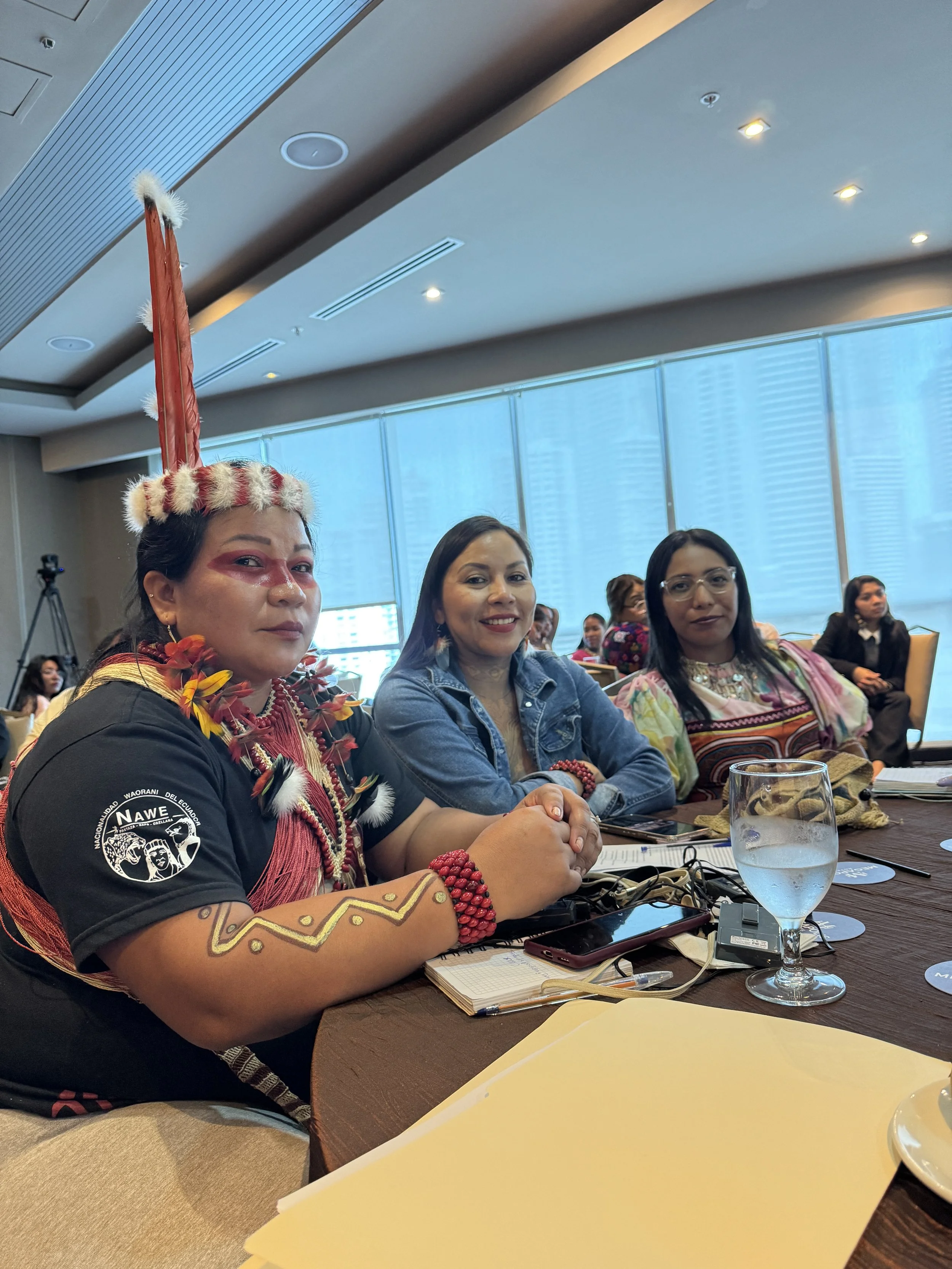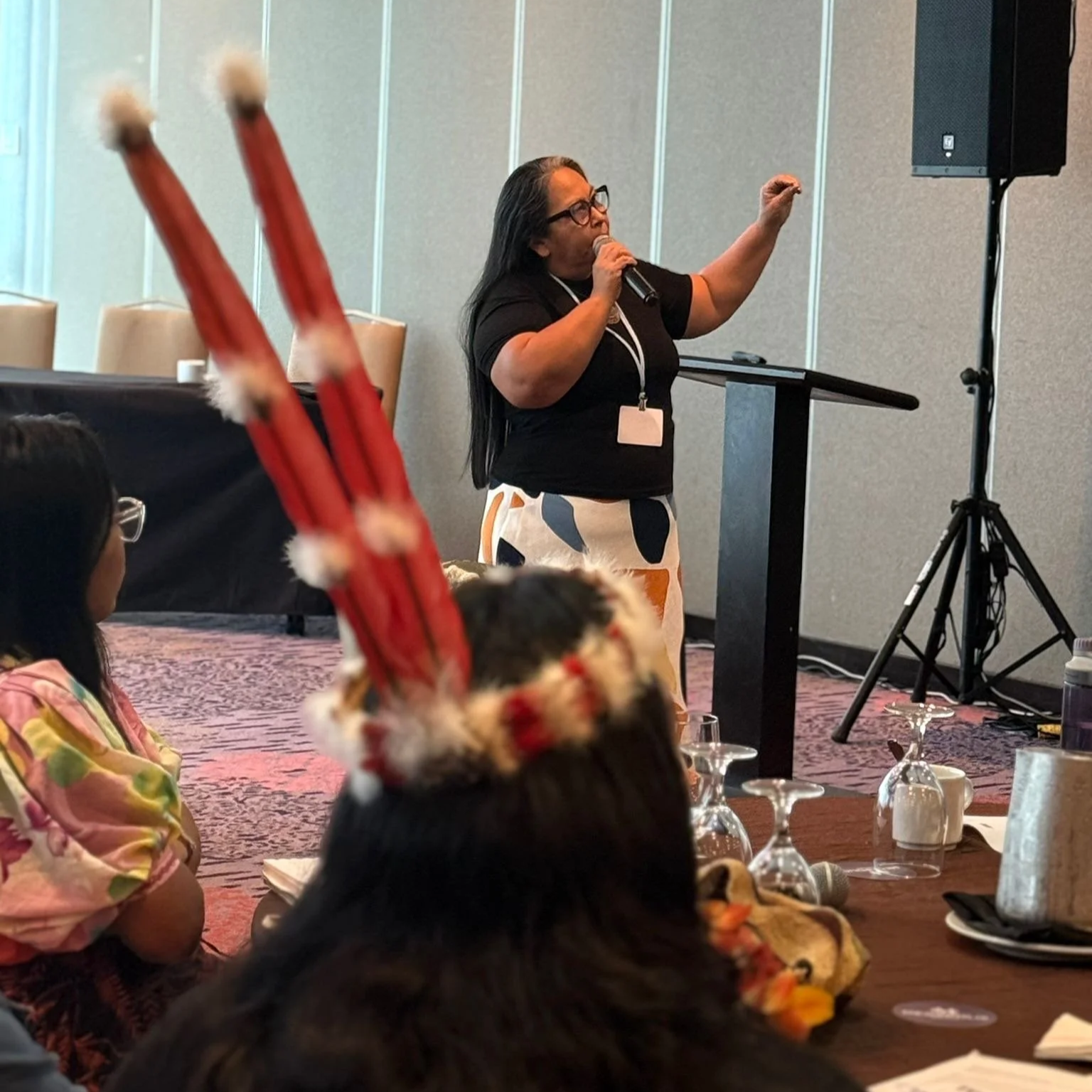From the Ground to the Global Stage: Indigenous Women Prepare for COP30
A regional training co-organized by DGM Global, Conservation International, and the FSC Indigenous Foundation during Panama Climate Week 2025
During Panama Climate Week 2025, a powerful gathering of Indigenous women leaders from across Latin America took place. The Capacity Building Workshop for Indigenous Women to Advocate in Climate and Biodiversity Negotiations—organized by the Dedicated Grant Mechanism (DGM), Conservation International, and the FSC Indigenous Foundation—created a space for dialogue, learning, and collective action. Participants from Mexico, Colombia, Ecuador, Honduras, Brazil, and Guatemala came together to strengthen their technical skills, exchange experiences, and deepen their impact on global environmental governance. Whether already engaged in national advocacy or beginning their journey, they shared a common commitment: advancing Indigenous leadership in climate and biodiversity negotiations.
Reflections of Indigenous Women Leaders
Learning emerges not only through technical knowledge but also through intergenerational dialogue and the revitalization of ancestral wisdom. During the workshop, participants shared several reflections:
The COP began 33 years ago, but the commitments established have not progressed significantly over the past three decades. It was observed that many decisions remain concentrated in the hands of governments, and that it is necessary to integrate ancestral knowledge into climate policies to ensure progress that is both sustainable and collective.
Participants also recognized the complexity of climate issues and noted that these are often not communicated in ways that are accessible to communities. They called for technical concepts to be translated into more understandable formats so that communities can engage with them within their own contexts. Although these issues may seem new in international forums, they have long existed within Indigenous peoples' ancestral practices, worldviews, and values.
“These issues are not new to us. What we need is for our way of naming them to be recognized,” mentioned one participant.
Young People Leading the Way
The new generations of Indigenous Peoples are prepared to confront the challenge of climate change from their own realities and perspectives. Among them are young professionals who are combining traditional knowledge with formal training to advocate for their communities on a global stage. One of the most inspiring moments was hearing from young Indigenous women, who voiced their concerns and aspirations to be agents of change within their communities. They spoke about bringing solutions and raising their peoples' voices in international arenas.
Rosibel Rodríguez Gallardo, from the Ngäbe people of southern Costa Rica, shared:
“It is a privilege to participate for the first time in an international gathering of Indigenous women in Panama. I want to learn a lot so I can share it with my people.”
This generational shift—rooted in respect for and continuity of ancestral knowledge—is a sign of enduring commitment to the Indigenous struggle for environmental and climate justice.
A Partnership for the Future
The meeting also provided an opportunity to build support networks among Indigenous women from different countries, promote mutual learning, and strengthen each participant’s leadership. The young women demonstrated their commitment to their communities and to continuing to influence the climate agenda.
Yeshing Upún, Maya Kaqchikel and a member of the Indigenous Women's Network on Biodiversity of Latin America and the Caribbean, shared:
“It is a pleasure to exchange experiences and knowledge, but above all, to join efforts and raise our voices in response to the different proposals that will be developed in the framework of COP30 and the ongoing biodiversity negotiations.”
At the close of Climate Week, Minnie Degawan, Managing Director of the FSC Indigenous Foundation, reflected:
“Climate Week should be more sensitive to the cultural aspects of the local people.”
Her words remind us that it is not possible to move toward a just climate future without active listening, deep respect, and genuine inclusion of those who have protected life in harmony with Mother Earth since time immemorial.
Sineia do Vale - Co-chair of the Indigenous Peoples Caucus
Climate Justice with a Voice: A Step Toward COP30
As the world looks ahead to COP30 in Belém, Indigenous women are not only strengthening their leadership but also building the technical knowledge required to engage in international climate negotiations. While the Panama workshop focused on capacity building, advocacy strategies, and peer learning, it was also part of a larger effort to ensure that Indigenous women are equipped to participate meaningfully in formal spaces like the 62nd session of the Subsidiary Bodies (SB62) under the UNFCCC process.
Held in parallel with Panama Climate Week 2025, this gathering complemented other preparatory efforts—such as technical trainings hosted earlier in June by partners including the International Indigenous Forum on Climate Change (IIFCC), the International Indigenous Youth Forum on Climate Change (IIYFCC), DOCIP, Nia Tero, and the United Nations Voluntary Fund for Indigenous Peoples (UNVFIP). Those sessions focused on the structure and agenda of SB62 and its relevance to COP30, including key negotiation tracks like the Global Goal on Adaptation and Article 6 of the Paris Agreement.
Together, these efforts underscore the importance of linking political advocacy with technical readiness, ensuring Indigenous women are not only visible in global climate spaces but fully prepared to shape the outcomes.
Closing Reflections
As the world moves toward COP30 in Belém, the voices, knowledge, and leadership of Indigenous women must remain at the center of climate and biodiversity negotiations. This workshop, made possible through the collaboration between DGM Global, Conservation International, and the FSC Indigenous Foundation, reaffirmed the power of partnerships in creating spaces where Indigenous women can build skills, share knowledge, and shape global agendas. Strengthening these alliances is essential to ensuring that Indigenous women are not only present in decision-making spaces—but are leading efforts to build a more just and sustainable future for all.







